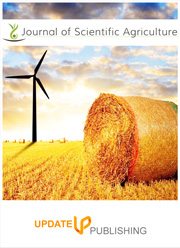The effect of lysine supplementation on the performance of Myanmar local breed and DYL crossed breed pig
DOI:
https://doi.org/10.25081/jsa.2018.v2.993Keywords:
Lysine, local breed, DYL crossed breed, growth performance, back fat thickness, interactionAbstract
A Completely Randomized Design (CRD) was comprised 2x3 factorial arrangements of two breeds (DYL and local breed) and three different lysine levels. The 18 weeks old, nine castrated DYL and nine local breed were randomly allocated in each individual pen to six treatment groups with three replicates into 18 pens. Two breeds of pigs (DYL and local breed) were exposed to the three different dietary treatments, L1- basal diet without lysine supplementation, L2- basal diet with 0.95% total lysine for finisher and L3- basal diet with 1.45% total lysine for finisher. The growth performance and back fat thickness were determined for finishing pigs. Significantly better body weight, weight gain, feed conversion ratio (FCR) and lower back fat were observed in pigs fed L2 but did not significantly differ from those fed L3. Otherwise, diets without lysine supplementation (L1) showed no better effect on the growth performances of both DYL and local breeds. It could be noted that L2 was the best level to obtain optimal growth performances and feed efficiency. Between the two breeds, growth performances of DYL were superior over that of local breed. Back fat thicknesses of DYL were also thinner than that of local breed. The interactions were observed between lysine levels and different breeds regard for final body weight, cumulative gain and feed conversion ratio. It was noticeable that lysine supplementation helped to improve growth performance and reduce back fat thickness of both local breed and DYL crossed breed. The result also showed that a comparison of the two different breed revealed the improved performances in DYL crossed breed rather than that of local breed.



 .
.